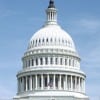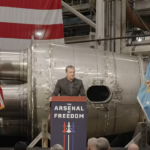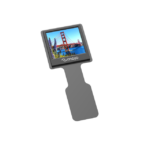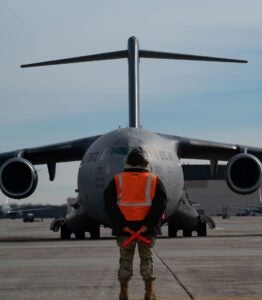
The House Transportation and Infrastructure on Wednesday approved by voice vote a two-year authorization bill for the Coast Guard that would allow for nearly $2 billion to be spent by the service on acquisition efforts in both FY ’18 and FY ’19.The Coast Guard Authorization Act of 2017 (H.R. 2518) would also require the Department of Homeland Security to establish a land-based unmanned aircraft system (UAS) program that is controlled by the Coast Guard. The Coast Guard doesn’t currently operate…

 By
By 











